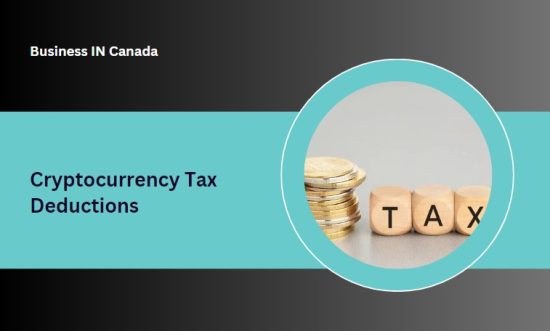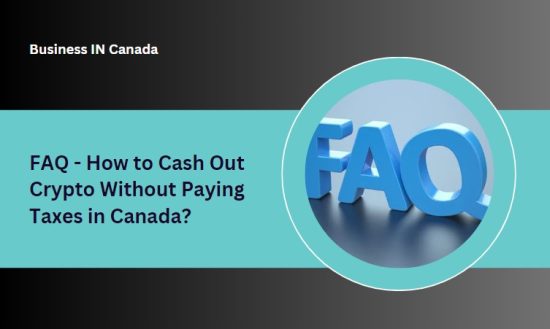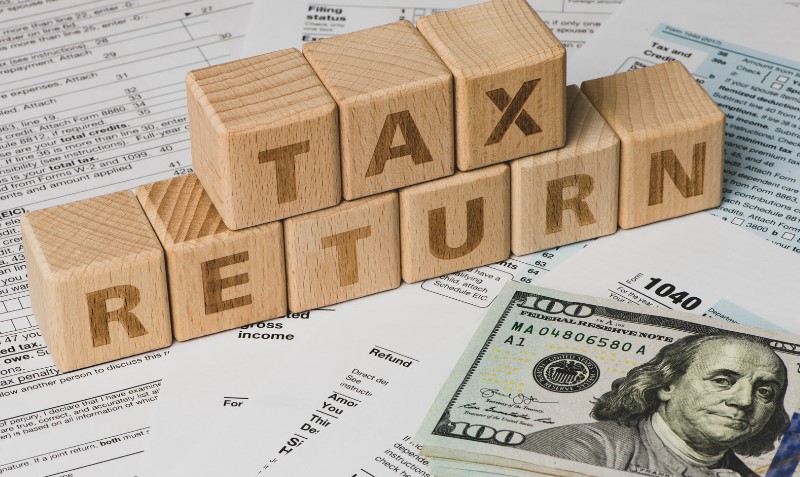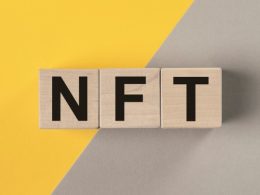Are you a crypto enthusiast in Canada looking to cash out your investments without getting taxed? You’re not alone. With the increasing popularity of cryptocurrency, many Canadian investors wonder how they can avoid paying taxes on their profits. Fortunately, there are legal ways to minimize tax liability when cashing out your crypto assets.
In this blog post, we will explore some effective strategies for cashing out Crypto without paying taxes in Canada and provide practical tips on how to file your crypto taxes correctly. So let’s dive in!
What is Cryptocurrency?
Cryptocurrency refers to a form of digital or virtual currency that utilizes cryptography to ensure its security and operates autonomously without any central authority controlling it. It differs from traditional fiat money in that it is decentralized, meaning any government or financial institution does not control it.

Bitcoin was the first cryptocurrency to gain widespread popularity, but now thousands of cryptocurrencies are available. These currencies operate on a peer-to-peer network where individuals can send and receive payments without intermediaries like banks.
Each cryptocurrency has its unique blockchain, which is essentially a public ledger that records all transactions made with that currency. The use of blockchain technology ensures transparency and immutability, making fraud nearly impossible.
One advantage of using cryptocurrency is the speed at which transactions can be processed. Transactions can be completed within seconds or minutes instead of days when compared to traditional banking systems.
While there are many benefits to using cryptocurrency, there are also risks involved, such as volatility and lack of regulation. Therefore, investing in Crypto requires caution and thorough research before entering this highly unpredictable market.
How is Cryptocurrency Taxed in Canada?
In Canada, cryptocurrency is treated as a commodity and is subject to taxation. This means that any gains from buying and selling cryptocurrencies are taxable.
The Canadian Revenue Agency (CRA) requires individuals to report their cryptocurrency transactions on their tax returns. Each transaction must be recorded in Canadian dollars at the time of the trade, with any gains or losses calculated accordingly.
If you hold your cryptocurrency for longer than one year before selling, it may be eligible for capital gains treatment. This means that only 50% of the gain will be taxed at your marginal tax rate.
It’s important to note that failure to report your crypto transactions can result in penalties and interest charges from the CRA. Therefore, it’s always best to consult with a professional accountant or tax expert when filing taxes involving cryptocurrency transactions.
How to Cash Out Crypto Without Paying Taxes in Canada?
Cryptocurrency investors in Canada are always looking for ways to cash out their investments without paying taxes. Luckily, there are legal ways to do so. One method is using crypto ETFs – exchange-traded funds that track the performance of multiple cryptocurrencies. By selling your shares in a crypto ETF, you can avoid triggering capital gains tax on individual cryptocurrencies.

Another option is behaving as an individual investor – instead of trading frequently or engaging in speculative behaviour, hold onto your coins for at least a year before selling them. This will result in long-term capital gains tax rates, which are often significantly lower than short-term rates.
If you have suffered losses from cryptocurrency investments, use them to offset any gains before cashing out. This strategy allows you to reduce or even eliminate your tax bill.
When filing taxes on cryptocurrency income, report all transactions accurately and seek professional advice if necessary. Keep track of all records, including buy/sell dates, prices, and transaction fees.
While it may seem difficult to cash out cryptocurrency without paying taxes in Canada, legitimate strategies are available for savvy investors who research and plan.
Use Crypto ETF
Using crypto ETFs can be a smart move when it comes to cashing out cryptocurrency without paying taxes in Canada.
Crypto ETFs are exchange-traded funds that track the performance of multiple cryptocurrencies. They provide diversification and reduce risk by investing in a basket of assets rather than just one.
One advantage of using crypto ETFs is that they offer exposure to cryptocurrencies while avoiding direct ownership. This means you don’t have to worry about storing your coins securely or managing private keys.

Another benefit is that selling your shares in an ETF is treated as a capital gain instead of income tax, which means lower tax rates apply. And if you hold the shares for more than one year before selling them, the gains are considered long-term and taxed at an even lower rate.
However, it’s important to research before investing in any crypto ETF. Look into their holdings, fees, and their management team’s experience and track record.
Using crypto ETFs can effectively cash out cryptocurrency without paying high taxes in Canada while minimizing risk through diversification.
Behave as an Individual Investor
Behaving as an individual investor can be a great way to cash out your Crypto without paying taxes in Canada. As an individual, you are allowed to have up to $200 of capital gains tax-free each year. This means that if you invest wisely and keep your profits below this threshold, you won’t have to worry about paying any tax.
One strategy for avoiding taxes is to hold onto your cryptocurrency until it increases significantly in value before cashing out. Doing so allows you to take advantage of the higher capital gains exemption and reduce your overall tax liability.
Another tip for behaving as an individual investor is to avoid day trading or frequent buying and selling of cryptocurrencies. These transactions may trigger taxable events, which could result in significant tax liabilities.
It’s also important to keep accurate records of all your cryptocurrency transactions, including purchases and sales. This will help you calculate your capital gains accurately when it comes time to file your taxes.
Consider seeking professional advice from a qualified accountant or financial advisor before making major investment decisions with your crypto assets. They can provide guidance on how best to minimize taxes while maximizing returns on investment over the long term.
Use Your Losses to Offset Your Gains
One of the strategies to reduce your tax liability when cashing out cryptocurrency in Canada is to use your losses to offset your gains. This means that if you have experienced losses from selling other cryptocurrencies or investments, you can use those losses to offset the gains you made when cashing out your Crypto.
To do this, you need to keep track of all your transactions and calculate how much profit or loss you have made on each one. You can then add up all the year’s profits and losses and determine your net gain or loss.
If you have a net loss for the year, you can use it to reduce any capital gains taxes owed on other investments. However, using those losses becomes even more important if you have a net gain, as they can help reduce your overall tax liability.
It’s important to note that there are rules around how much of a loss can be claimed against gains in a given year. Any unused amounts can be carried forward indefinitely until they’re used up.
By using this strategy along with others like investing in Crypto ETFs and behaving as individual investors, Canadians may find ways to avoid paying large sums in taxes when cashing out their cryptocurrency holdings.
How Do I File My Crypto Taxes in Canada?
Filing your crypto taxes in Canada can be daunting, but avoiding any legal issues is necessary. The first step is gathering all your transactions and calculating your gains or losses. This includes all trades, sales, purchases, and even mining rewards.
Once you have calculated your gains or losses, you will need to report them on your tax return using the appropriate forms provided by the Canada Revenue Agency (CRA). These forms include the T1 Personal Income Tax Return and the Schedule 3 Capital Gains (or Losses).
It is important to note that cryptocurrencies are treated as commodities for tax purposes in Canada. Therefore, capital gains taxes apply when you sell or trade cryptocurrency for more than its original cost.
If you fail to report cryptocurrency income on your tax return or provide false information, you may face penalties and interest charges from the CRA. To ensure accuracy with filing crypto taxes in Canada, consider seeking advice from a qualified professional accountant who has experience dealing with cryptocurrencies.
Filing crypto taxes can be complex but necessary. It’s crucial to avoid legal problems and ensure that you’re contributing fairly toward society through taxation.
Cryptocurrency Tax Deductions

When it comes to cryptocurrency taxes in Canada, there are a few deductions available for those who hold or trade cryptocurrencies. The first deduction is related to mining expenses, which can be deducted from your taxable income if you mine cryptocurrencies as part of your business.
Another deduction that may be available is related to trading fees and expenses. If you are an active trader in the cryptocurrency market, you may be able to deduct any fees or expenses associated with your trades. This includes transaction fees on exchanges and any other costs incurred when buying or selling coins.
It’s important to note that these deductions only apply if you are using cryptocurrencies for business purposes. If you’re holding onto them as an investment, they won’t usually qualify for any tax deductions.
In addition to these specific deductions, it’s also possible to offset gains with losses from other investments. So if you have made a profit from trading cryptocurrencies but lost money on stocks or another investment during the same year, you can use the losses to reduce your overall tax liability.
While there aren’t many specific tax deductions available for cryptocurrency holders in Canada at this time, there are still some ways to minimize your overall tax bill by taking advantage of relevant expenses and losses.
Conclusion
As we’ve discussed, cashing out Crypto without paying taxes in Canada requires careful planning and consideration. Understanding the tax laws surrounding cryptocurrency in Canada and various strategies for minimizing your tax liability is important.
Using crypto ETFs can be a smart way to diversify your portfolio while also potentially reducing your taxes. Behaving as an individual investor and using losses to offset gains are other effective tactics for lowering your tax bill.
Remember that filing your crypto taxes correctly is crucial. Ensure you understand all the steps and seek professional guidance if needed.
It’s worth noting that while avoiding taxes may seem tempting, it’s important to follow the Canadian government’s rules and regulations. Attempting to evade taxes can lead to serious legal consequences down the line.
With proper planning and execution, it is possible to cash out Crypto without paying excessive amounts of taxes in Canada. Stay informed about any future changes or updates made regarding cryptocurrency taxation laws!
FAQ – How to Cash Out Crypto Without Paying Taxes in Canada?

How can I avoid crypto tax in Canada?
There is no guaranteed way to completely avoid crypto tax in Canada, as the government requires individuals and businesses to pay taxes on any income earned. However, one can use a few strategies to minimize tax liability.
One option is to hold onto cryptocurrencies for over a year before selling them, qualifying for the lower long-term capital gains tax rate instead of, the higher short-term rate. Another strategy is donating cryptocurrency directly to charity, allowing you to receive a charitable donation receipt that can be used as a tax deduction.
Investing in registered investment accounts like RRSPs or TFSAs is also worth considering. While these accounts won’t eliminate taxes owed on crypto earnings, they provide significant tax advantages and can help reduce overall taxable income.
Always keeping accurate records of all crypto transactions made throughout the year is essential. Doing so gives you all the necessary information when filing your taxes. You will be able to maximize deductions while minimizing errors or omissions that may trigger an audit from the CRA.
How do I cash out a large amount of Crypto in Canada?
Cashing out a large amount of cryptocurrency in Canada can be tricky and overwhelming. However, with proper planning and execution, it is possible to do so without paying hefty taxes.
Firstly, it’s important to properly document all your transactions to ensure that you have accurate records for tax purposes. Depending on the amount you’re looking to cash out, it may also be worth seeking professional advice from an accountant or financial advisor.
When withdrawing large amounts of funds from your crypto exchange account, it’s crucial to exercise caution and take necessary security measures, such as enabling two-factor authentication and using a secure wallet for storage.
It’s also important to consider the timing of your withdrawals – depending on market conditions, converting all your cryptocurrency at once could result in significant losses. Consider spreading out your withdrawals over several months or even years if possible.
Ensure you know the tax implications involved in cashing out large amounts of Crypto. Consult with a tax professional to ensure you fully comply with Canadian tax laws and regulations.
Do I have to pay taxes on crypto earnings Canada?
Cryptocurrency earnings are subject to taxation in Canada. The country’s tax laws treat cryptocurrencies as commodities, which means any income generated from trading or mining them is taxable.
You must report these earnings on your tax return if you’re a Canadian resident earning money through cryptocurrency transactions. This includes profits made from buying and selling digital assets like Bitcoin, Ethereum, Litecoin, etc.
However, the amount of taxes you’ll owe depends on several factors, such as the type of cryptocurrency transaction involved (buying vs selling), the length of time you held onto your Crypto before selling it (short-term vs long-term capital gains), and other applicable deductions.
It’s important to note that failure to report your crypto earnings can lead to penalties and interest charges. Therefore, it’s recommended that you keep accurate records of all your cryptocurrency transactions throughout the year for ease of reporting come tax season.
If you earn money through cryptocurrencies in Canada – whether by trading or mining – then yes, you will have to pay taxes on those earnings according to the country’s tax laws.
Should I cash out Crypto?
In order to cash out the Crypto, you should wait until you see an optimal gain. All you need is a strategy and your knowledge of the market. Since the market constantly shifts and Crypto itself is pretty volatile, you cannot predict the perfect time to sell your coin.
How much is capital gains tax in Canada?
You must include 50% of your capital gains in your income taxes because Canada’s capital gains tax rate is 50%. The adjusted cost base is the amount you paid to acquire the capital property, including related costs.










